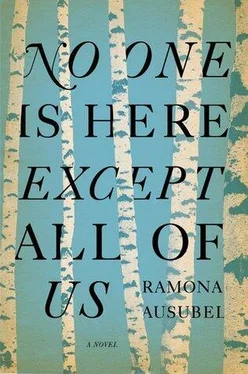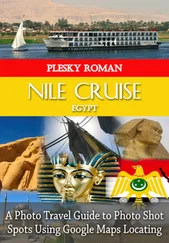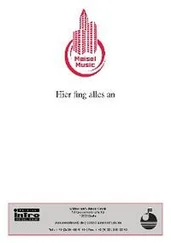The moment we were in was a hinge — the past swung on one side, the future on the other. Everything that had ever happened led us here, from the very first day onward.
Ours was a migrating people even in the beginning. The first man and the first woman, set out into the unknown world. Fields were tilled and lambs were born. Begets were begotten, and begotten again. A tribe of luthiers, a tribe of forgers. Winemakers, plowers, sons and daughters.
Out the people went, fruitful, multiplying as they were told. The earth felt the padding of human feet. The tribes divided, God visited in dreams, in deserts, promised land to the ones he had grown to like. Men erected stones as markers, sacrificed calves. All the while, they told the story back: In the beginning there was a beautiful garden, and we were cast out of it, and we began again.
Twice we built huge, beautiful temples to recognize God and everything he had given us. Twice, they were destroyed.
The second temple, like the first, contained a chamber of knives, a chamber of oils and wines, a chamber of lepers, a chamber of wood. The gates were named for Music, Light, Sacrifice, Women, Water and Flames. The structure was made of white marble, rimmed with gold, and it stood for hundreds of years, and our people lived in the valley beneath. It would not be true to call that time peaceful, but from a distance, from this far away, we had allowed ourselves to dream of those days, because the next thing that happened was, an army appeared on the horizon, a swarm of men, sunlight glinting from their helmets, and we did not win the battle. We began to walk away in a million different directions: some went into the olive-green hills, some climbed over the mountains, some crossed the seas. Dunes collapsed under our feet. We slept in the bellies of creaky ships, disembarked onto unknown soil. All the while, we told the stories back, and they kept us alive as a people. Our bodies might have survived without them, but not our hearts.
We began again and again, across the face of the earth.
On a remote island there lived a powerful king with a hundred and fifty thousand subjects armed with sharp spears. The king rode a leopard and his men rode fearsome steeds that feasted on cooked mutton and drank only wine. These men were our great-great-great-great-grandparents. As they brushed their horses’ oil-black manes the king told a story: Once, God tested the faith of our Abraham by asking him to sacrifice his eldest son, and because that man took his boy to the top of the mountain and raised a knife over his neck, God knows that we are true.
In the city of Mecca, our great-great-greats settled down. They refused to eat meat and filled their plates instead with peas, butter, sugar and fruits. They lived in roofless houses and wore silk robes bedecked in long strands of pearls. While they stirred a spiced stew, the mothers told a story: Once, to a faithful man, God said, “Among man, only you are worthy of my creation. Build yourself a very good boat. Use cypress wood and sap, and take two of every living creature with you.” After days and days and days, rain and rain and rain, after weeks and weeks and weeks of floating: a dove with an olive branch in her beak. And the man stepped onto the land, and every toothy, beaked, trunked, whiskered creature with them, and the world, the whole world, was new.
In Ethiopia, the Jews received a strange gift. How it arrived, we do not know — the old men said it was a many-sailed ship; the old women said it traveled inside the belly of a whale; the bachelors believed a griffin carried it over the sea; the whores swore it was the fat hand of God himself. In any case, onto the desert walked a savage who had no head; his eyes and mouth were set in his breast. He wore forty clear sapphires. With him came a note from a place called Calicut.
Dear Brothers, We are on the other side of the ocean, but we have not forgotten you. We are always your family . The paper was embossed with an elephant and a tiger.
The Jews of Ethiopia sent a rowboat with six messengers, two spotted goats, a Torah scroll, the paw of a lion and a letter: Dear Brothers, Thank you for the headless savage. He is the most beautiful we have ever seen. We do not know you, but we love you. With the savage chained up beside them, those who stayed told a story: Once, we were slaves in Pharaoh’s land, but we escaped. The sea parted, the commandments were given, and we began again on the other side of the desert.
The rowboat bobbled along for weeks until, nearing a foreign shore, a storm ground the craft to splinters and our great-greats were washed to shore by the waves, their Torah scroll destroyed. Over time, they forgot all the prayers but one, which they repeated on every occasion. At weddings they said, “The Lord is One.” At circumcisions, “The Lord is One.” They cut the orange in half, broke a coconut or two. They killed a rooster and said, “The Lord is One.”
In the Caucasus Mountains, high above the Caspian Sea, our great-grandmothers went to the well wearing veils and cloaks in colors as bright as flowers. They carried water jugs on their heads and smoked long pipes. The older women belonged to a special league of mourners. Families of the dead hired the women to fall down in misery, pound their fists on the frozen earth, wail until all ears, including God’s, rang with the sound of what was lost. In the dark, after their tears had salted everything, they said, “Once, after a lifetime of childlessness, Sarah became pregnant at ninety years old, and what did she do? She laughed.”
In Spain, the queen said to our great-grandparents, “Please, open businesses and lend money.” And then, a little while later, she said, “Look at you with your bills and coins. You are dirty, and I want you out.” So our great-grandparents changed their hair, hid their candelabra in the closet and nailed crosses to the wall, though their beliefs had not changed. They became Señor Henríquez, Señora Estrada. They drew maps, joined voyages across the world, traded for Inca gold and Amazon women. Sometimes they were safe and sometimes they were rounded up and killed. Sometimes they were in the king’s care and sometimes they were at the end of his dagger. They prayed, they worked, they escaped.
Someone said, “You are dirty and strange and I want you out,” and our people crossed the river. There they were told, “Your kind are not welcome here,” and they switchbacked the mountains. At the top of the highest peak, the locals crossed their arms and shook their heads and our great-great-grandparents continued on.
For hundreds of years: a little peace, the weeks marked with ritual, with work. Babies born, circumcised, feasts eaten, an extra place setting at the table for the prophet, weddings conducted, temples lit with lamps. Great-greats became greats became grandparents. They said, “This is the day the Lord has made. Let us rejoice and be glad in it.”
And then an accusation in Bucharest, another in Sofia — Jews Sacrifice Christian Child for Ritual Purposes — and the mobs tore doors down, emptied the houses of valuables and killed the leaders, burned those who retreated into the synagogue. The survivors packed up again, went deeper into the mountains, settled down, marked the weeks. Life was like a parenthesis between catastrophes. Each time, they had to decide which to rebuild first — the temple or the cemetery. The stories of terror came from every direction. Cossacks in the north, our citizenship revoked in the south. The cities were not safe, the towns were worse. One ruler expelled all the Jews across the Danube, but when the Ottomans on the other side turned them back, the ruler said, “Oh, just drown them,” and that is exactly what his men did.
And so, the little group, our heavy-headed and tired grandparents, the few to survive the latest pogrom, walked with their pairs of goats, sheep, dogs and horses for forty-one days from the town of Iasi through Bukovina. The grandparents brought languages and coins from all the places everyone had lived — Spanish pesetas, Italian lire, Austro-Hungarian kronen, Polish zlotys, pieces of Ottoman silver, Yugoslavian copper, ancient Syrian gold and new Russian paper. They had German curse words, Polish love songs, English poems, Hebrew prayers and Yiddish scoldings. They had wandered and traded, wandered and traded, and they had been filled up with words.
Читать дальше












